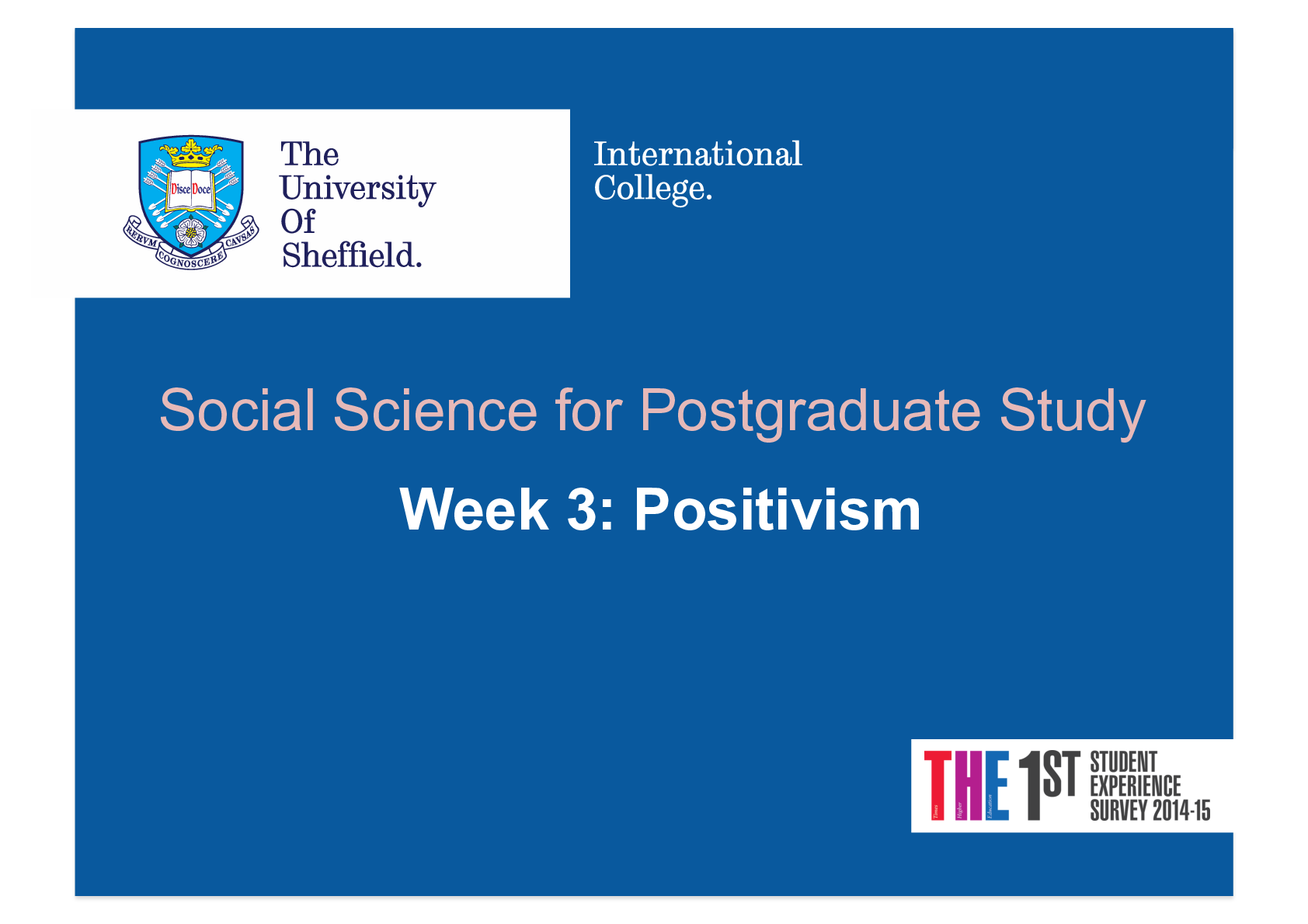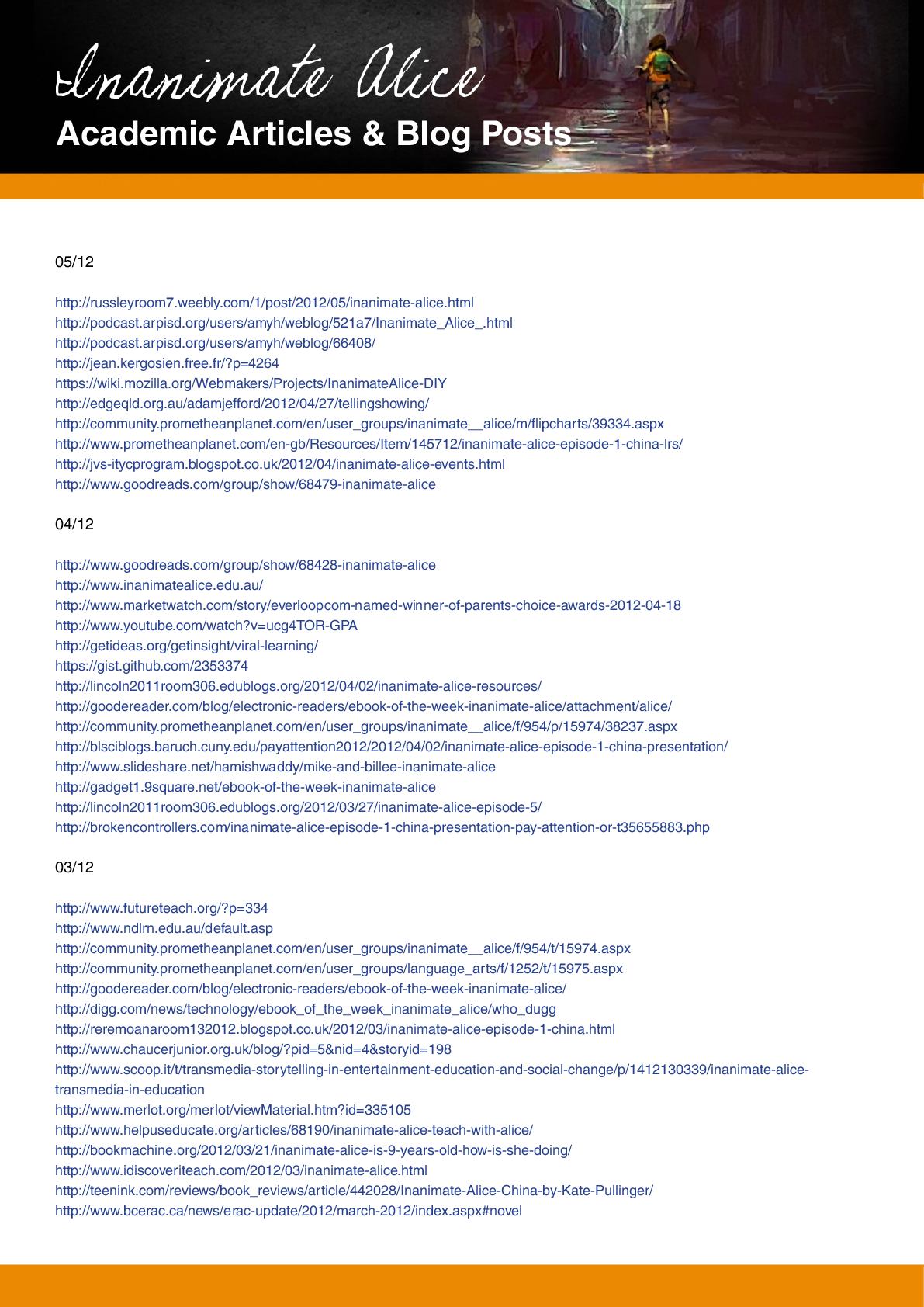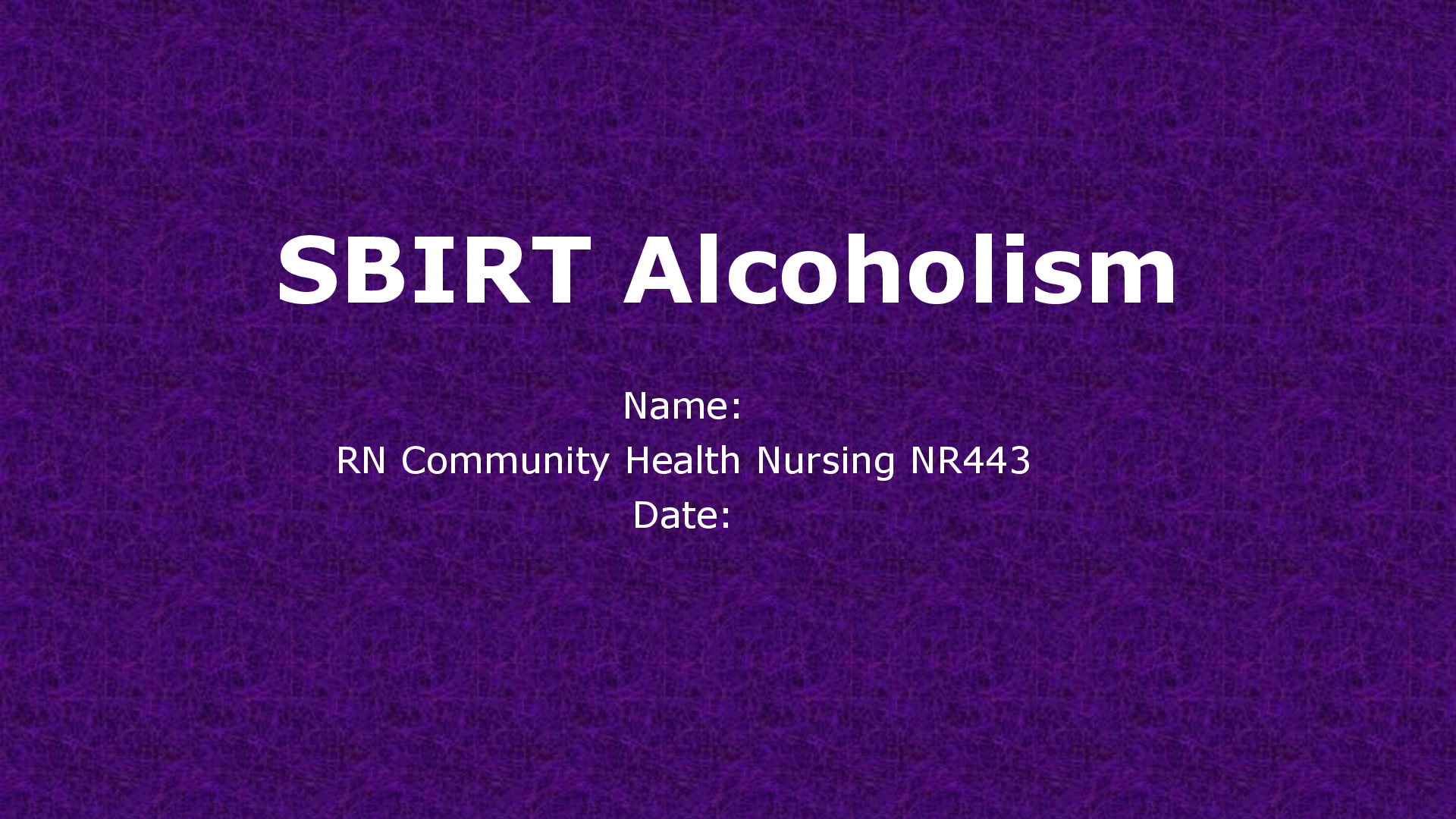Philosophy > Presentation > Social Science for Postgraduate Study Week 3: Positivism Introduction. Best Presentation (All)
Social Science for Postgraduate Study Week 3: Positivism Introduction. Best Presentation
Document Content and Description Below
2 • Last week we explored the broad philosophical concepts that are fundamental to social science research: ontology, epistemology, theory. • This week, we start our focus on a range of ... epistemologies relevant to social science research: Positivism • If you remember, a key element of positivism is objective knowledge.Learning Outcomes 3 • Understand the key principles of positivism; • Understand the origins of positivism; • Understand positivism in practice; • To engage in an evaluation of positivism.What is Positivism? • Positivism is an epistemological perspective. • It believes in the scientific study of the social world. • This is based on there being one single reality that we can know and explain. • Knowledge is gained through experience – observation, measurement and experimentation. • Let’s look at these points in more detail… 4Positivism – Key Principles • There are five key principles of positivism: 1. Objectivism 2. Empiricism 3. Scientific method (and scientific knowledge) 4. Value freedom 5. Instrumental (useful) knowledge 5Objectivism (Ontology) • Positivism is based on an objectivist view of reality. – There is a real world independent of our knowledge of it. • The job of the social scientist is to neutrally observe and discover this reality. 6Empiricism • The belief that knowledge comes from direct observation and experimentation. • Knowledge is verified (proved) through repeated observation. • Researchers used repeated observation to discover and verify universal laws and theories. – Laws are generalised, descriptive statements of observed phenomenon – Theories are generalised, explanatory statements of observed phenomenon 7Scientific Method • The scientific method is a logical process for the gaining of objective knowledge. • It is intended to be an unbiased way of discovering truth: – If the scientific method is followed, then the results of observation should be accurate. – It does not matter who makes the observation. • The scientific method is a way of discovering and testing scientific laws and theories. 8Scientific Method 9 Obsv • Observation • observation and description of phenomena Hypo • Hypothesis • develop a hypothesis to explain the phenomena Pred • Prediction • use hypothesis to predict other phenomena or results of future observations Test • Testing • test the predictions using observations and experimentsScientific Method 10 Observation Hypothesis Prediction Testing Hypothesis proved Hypothesis disproved TheoryScientific Knowledge • If the scientific method is followed, then the knowledge that is discovered will also be scientific. • So the scientific method will produce scientific knowledge. • Scientific knowledge has to be: – Based on observation – Unbiased (objective) – Concerned with truth – Universal – Reliable 11Value Freedom • As we have seen, the gaining of objective knowledge is a neutral process and activity. – The beliefs, values and opinions of the researcher should not have any role in the gaining of knowledge. • Positivism therefore involves a separation between facts and values: 12Value Freedom • Values cannot come from facts, and facts cannot come from values. • Truth can be verified through observation, values cannot. • Therefore scientific knowledge is seen as different from, and sometimes superior to, other types of knowledge. 13Instrumental Knowledge • Instrumental knowledge refer to knowledge that can and should be put to use in society. • This goes back to the fundamental aim of social science: – To understand and explain social problems, and identify solutions. • This links to the idea of progress: – Over time we gain a more accurate understanding of the world; – We can then use this knowledge to benefit people. 14Origins of Positivism • As we saw in Week 1, social science’s origins are in the development of modern natural science. – The Scientific Revolution 1550-1700 • The development of positivism as an epistemology is the start of social science. • Auguste Comte is the scholar who developed the positivist epistemology… 15Auguste Comte 1798-1857 • From 1830-1848 Comte published a series of books that detailed positivism. • He believed that the natural sciences had reached the stage of discovering truth, through direct observation. • However, intellectual thought regarding society was focused on abstract ideas: – Universal rights, freedom, equality. – These things cannot be observed. 16Auguste Comte 1798-1857 • Comte then argued that if we were to properly understand society, then we needed to study the social world in the same way the sciences study the natural world. • Then social science could achieve the same status as natural science • Comte has been hugely influential both in: – The philosophy of epistemology; – The practice of social science. 17Positivism in Practice - Durkheim • Durkheim (1858-1917) was another scholar who was hugely influential in the foundation of social science, and was influenced by positivism. • Durkheim argued that social institutions outlive the particular individuals who inhabit them: – Social movements – feminism – Organisations – government – Social structures – family • Durkheim called these ‘social facts’. 18Positivism in Practice - Durkheim • Social facts: ways of acting, or patterns of behaviour, that are an external constraint on individuals. • Therefore for Durkheim, these social facts must have a reality of their own – objectivist ontology • If this is so, then the existence of them can be established through the observation of social behaviour. • Durkheim tried to establish this through his study of suicide… 19Positivism in Practice - Durkheim • Durkheim attempted to find out whether suicide was caused by society rather than an individual’s mental state. • He collected statistics on suicide rates across Europe • He looked at the differences in suicide rates among countries and different categories of people • He argued that suicide rates are not affected by non-social factors, such as race, genetics, mental disorder, climate or season of the year. 20Positivism in Practice - Durkheim • Durkheim argued that suicide rates are affected by social factors, such as religious faith, marital status, employment and sudden change income: – Individuals with a stronger integration to a religious community had lower levels of suicide • The main method he took from positivism was the use of evidence gained from observations of statistical data to establish the existence of social facts. 21Positivism: Summary • Positivism is an epistemology that applies the scientific method to the study of society. • 5 key principles: 1. Objectivism 2. Empiricism 3. Scientific method 4. Value freedom 5. Instrumental knowledge 22Positivism: Summary • 2 influential key thinkers: – Auguste Comte: developed positivism based on the success of the natural sciences. – Emile Durkheim: used positivism in his empirical study of society and social behaviour. 23 [Show More]
Last updated: 3 years ago
Preview 1 out of 23 pages

Buy this document to get the full access instantly
Instant Download Access after purchase
Buy NowInstant download
We Accept:

Reviews( 0 )
$4.00
Can't find what you want? Try our AI powered Search
Document information
Connected school, study & course
About the document
Uploaded On
Jan 21, 2020
Number of pages
23
Written in
All
Additional information
This document has been written for:
Uploaded
Jan 21, 2020
Downloads
0
Views
135















 (1).png)





